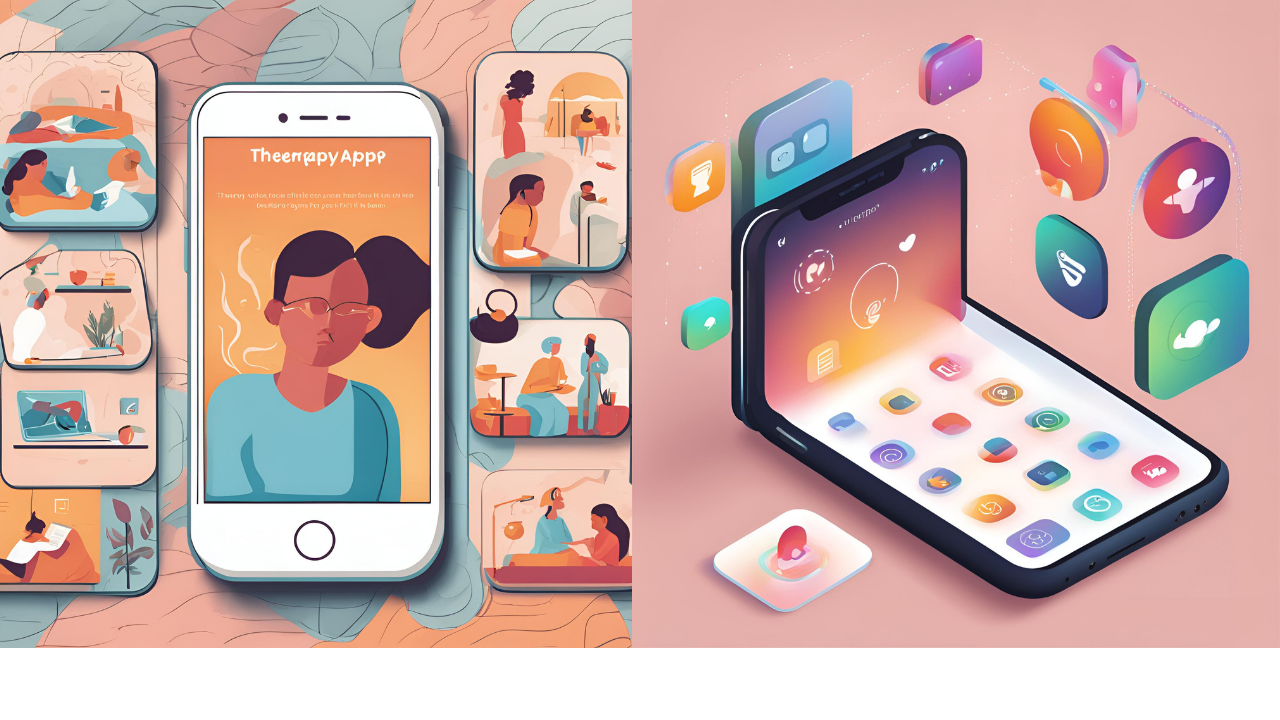The Rise of Online Therapy Sessions
In today’s fast-paced world, mental health is becoming a growing concern. Amidst our busy lives, finding time for self-care and mental health support can be challenging. This is where online therapy sessions come into play, offering a convenient and effective way to access professional help without the need to visit a therapist’s office. As we explore this modern approach to mental health, we’ll delve into the benefits, challenges, and personal stories that highlight the impact of online therapy.

The Convenience Factor
One of the primary advantages of online therapy is its convenience. Traditional in-person therapy often requires time off work, travel, and the hassle of scheduling appointments. Online therapy, on the other hand, allows individuals to connect with their therapists from the comfort of their homes, saving time and reducing stress. This flexibility is particularly beneficial for those with busy schedules, mobility issues, or living in remote areas.
Personal Anecdote:
Sarah, a 35-year-old marketing manager, found online therapy to be a game-changer. “I was struggling with anxiety and felt overwhelmed with my job. The thought of taking time off work and sitting in traffic to get to a therapist was adding to my stress. Online therapy allowed me to schedule sessions during my lunch break or in the evenings, making it easier to fit into my hectic schedule. It made a huge difference in my mental health.”
Accessibility and Affordability
Online therapy has made mental health support more accessible to a broader audience. In many regions, there is a shortage of qualified mental health professionals, leading to long waiting lists for in-person appointments. Online platforms bridge this gap by connecting individuals with licensed therapists across the country, or even globally. This increased accessibility ensures that more people can receive the help they need when they need it.
Moreover, online therapy can be more affordable than traditional therapy. Many online platforms offer subscription-based services or sliding scale fees based on income, making it a viable option for those who may not have insurance coverage or the financial means for regular in-person sessions.
A Wide Range of Therapeutic Approaches
Online therapy encompasses a variety of therapeutic approaches to suit different needs and preferences. Cognitive-behavioral therapy (CBT), mindfulness-based therapy, and dialectical behavior therapy (DBT) are just a few examples of the modalities available online. This diversity allows individuals to choose a therapy style that resonates with them and addresses their specific concerns.
Personal Anecdote:
John, a 28-year-old software developer, struggled with depression and was hesitant to seek help. “I wasn’t sure what kind of therapy would work for me. When I started looking into online therapy, I was amazed by the range of options available. My therapist used a mix of CBT and mindfulness techniques that really helped me understand and manage my depression. It was empowering to have choices and find something that worked for me.”
Anonymity and Reduced Stigma
For many, the stigma associated with seeking mental health support can be a significant barrier. Online therapy provides a level of anonymity that can make it easier for individuals to reach out for help without fear of judgment. The ability to attend sessions from a private space can reduce the anxiety associated with being seen entering a therapist’s office.
Additionally, online therapy platforms often allow users to choose whether they want to use video, phone, or text-based communication. This flexibility can make therapy feel less intimidating and more accessible, particularly for those who are new to the process or uncomfortable with face-to-face interactions.

The Therapeutic Relationship
One of the concerns often raised about online therapy is the potential impact on the therapeutic relationship. Building trust and rapport with a therapist is crucial for effective treatment, and some worry that this may be more challenging in a virtual setting. However, research suggests that the therapeutic relationship can be just as strong in online therapy as in traditional settings.
Personal Anecdote:
Maria, a 42-year-old teacher, was skeptical about online therapy at first. “I was worried that I wouldn’t be able to connect with my therapist through a screen. But after a few sessions, I realized that the connection was just as strong as it would be in person. My therapist was able to provide the support and guidance I needed, and I felt comfortable opening up about my struggles.”
The Role of Technology
Technology plays a vital role in the effectiveness of online therapy. Secure video conferencing platforms, encrypted messaging services, and user-friendly mobile apps ensure that sessions are private and confidential. These technological advancements have made it possible to deliver high-quality mental health care remotely.
Additionally, some online therapy platforms offer supplementary tools such as mood tracking, journaling, and meditation exercises. These resources can enhance the therapeutic experience and provide individuals with practical strategies to manage their mental health between sessions.
Challenges and Considerations
While online therapy offers numerous benefits, it is not without its challenges. Technical issues such as poor internet connection or software glitches can disrupt sessions and impact the therapeutic process. It is also essential to ensure that the chosen platform complies with privacy regulations and maintains the confidentiality of client information.
Furthermore, online therapy may not be suitable for everyone. Individuals with severe mental health conditions or those in crisis may require more intensive, in-person support. It is crucial to assess the level of care needed and seek appropriate help.
Future Prospects
The popularity of online therapy has surged in recent years, particularly during the COVID-19 pandemic. This trend is likely to continue as more people recognize the benefits and convenience it offers. As technology advances, we can expect to see further improvements in the delivery and effectiveness of online therapy.

Conclusion
Online therapy sessions represent a significant shift in the way we approach mental health care. By providing convenient, accessible, and affordable options for therapy, online platforms are making it easier for individuals to seek the support they need. Personal stories like those of Sarah, John, and Maria highlight the positive impact that online therapy can have on mental health. As we embrace this modern approach, it is essential to continue addressing the challenges and ensuring that online therapy remains a viable and effective option for those seeking help.
In conclusion, the rise of online therapy sessions marks a new era in mental health care, one that prioritizes accessibility and convenience without compromising the quality of care. Whether you are dealing with anxiety, depression, or simply seeking ways to improve your mental well-being, online therapy offers a flexible and supportive solution tailored to your needs.




I抳e recently started a website, the info you offer on this web site has helped me greatly. Thank you for all of your time & work.
You can definitely see your enthusiasm within the work you write. The world hopes for more passionate writers such as you who aren’t afraid to say how they believe. Always go after your heart.
you’ve got a terrific weblog right here! would you prefer to make some invite posts on my weblog?
Can you be more specific about the content of your article? After reading it, I still have some doubts. Hope you can help me.
I don’t think the title of your article matches the content lol. Just kidding, mainly because I had some doubts after reading the article.
Your point of view caught my eye and was very interesting. Thanks. I have a question for you.
Your article helped me a lot, is there any more related content? Thanks!
Can you be more specific about the content of your article? After reading it, I still have some doubts. Hope you can help me.